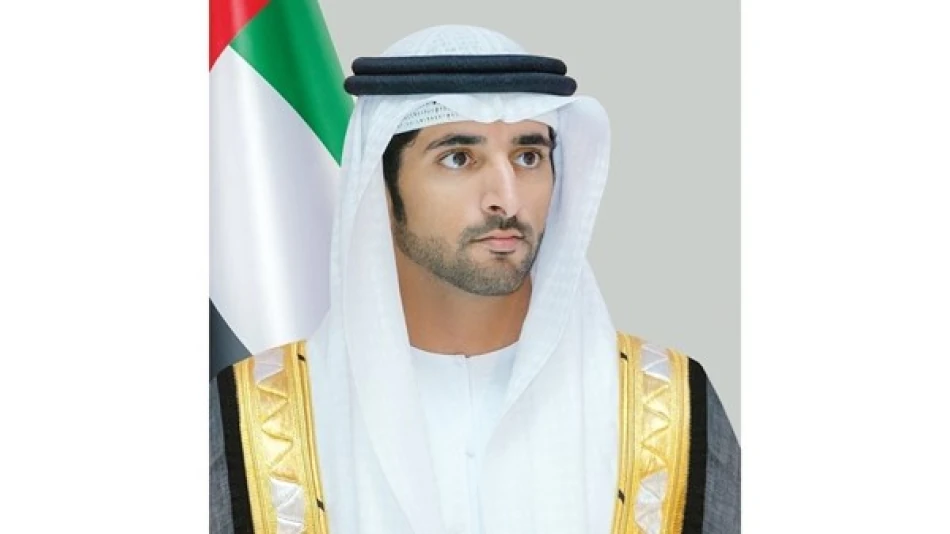
Hamdan bin Mohammed Hails Shaikha Hind Bint Maktoum Family Program's Remarkable Success
Dubai's Family-First Strategy Delivers 95% Satisfaction as Marriage Initiative Triples in Popularity
Dubai's ambitious family support program has achieved remarkable success in its first year, with beneficiary satisfaction reaching 95% and participation in the emirate's marriage initiative surging by 218%. The results signal a strategic shift toward social investment that positions family welfare as a cornerstone of Dubai's long-term economic vision.
Unprecedented Growth in Government-Backed Social Programs
Sheikh Hamdan bin Mohammed bin Rashid Al Maktoum, Crown Prince of Dubai and Chairman of Dubai's Executive Council, announced the striking performance metrics of the "Sheikha Hind bint Maktoum Family Program" since its January 2024 launch. The program's flagship "Dubai Weddings" initiative now accounts for over 27% of all marriages registered in the emirate, representing a fundamental transformation in how government services integrate with citizens' personal milestones.
The 218% year-over-year increase in participation demonstrates not just program popularity, but suggests a broader cultural acceptance of government involvement in traditionally private family matters. This approach mirrors successful social cohesion strategies employed by Singapore and other Gulf states, where government-facilitated community building has become a policy cornerstone.
Strategic Social Investment Model
Beyond Traditional Welfare Approaches
Dubai's family program represents a departure from conventional social services by focusing on life-stage support rather than crisis intervention. The emphasis on marriage facilitation and family formation aligns with broader demographic challenges facing the UAE, where expatriate populations significantly outnumber nationals and birth rates among Emiratis remain a policy concern.
The program's integration into "Dubai Social Agenda 33" – the emirate's long-term social development framework – indicates this isn't merely a welfare initiative but a calculated investment in human capital development. By supporting family formation and stability, Dubai aims to strengthen its social fabric while building a more sustainable demographic foundation for future economic growth.
Regional Leadership in Social Innovation
The UAE has consistently positioned itself as a regional pioneer in government innovation, from digital services to happiness indices. This family-focused approach extends that leadership into social policy, potentially setting a template for other Gulf Cooperation Council nations grappling with similar demographic transitions and social modernization challenges.
The program's success metrics – particularly the 95% satisfaction rate – suggest Dubai has found an effective balance between traditional values and modern service delivery. This achievement becomes more significant when compared to typical government program satisfaction rates, which rarely exceed 70% globally.
Economic and Social Implications
The Crown Prince's characterization of family investment as "investment in the nation's future" reflects a sophisticated understanding of social capital economics. Strong family structures typically correlate with higher educational achievement, reduced social services costs, and increased economic productivity – factors crucial for Dubai's post-oil economic diversification strategy.
For businesses and investors, these social stability indicators signal a maturing market with strong institutional support for long-term planning. The program's success suggests Dubai's government maintains high public trust and implementation capacity, factors that enhance the emirate's attractiveness for international investment and talent attraction.
The initiative's rapid adoption and high satisfaction rates also demonstrate Dubai's ability to innovate in non-commercial sectors, reinforcing its reputation as a forward-thinking governance model that could influence regional policy development and international best practices in social program design.
Most Viewed News

 Layla Al Mansoori
Layla Al Mansoori






